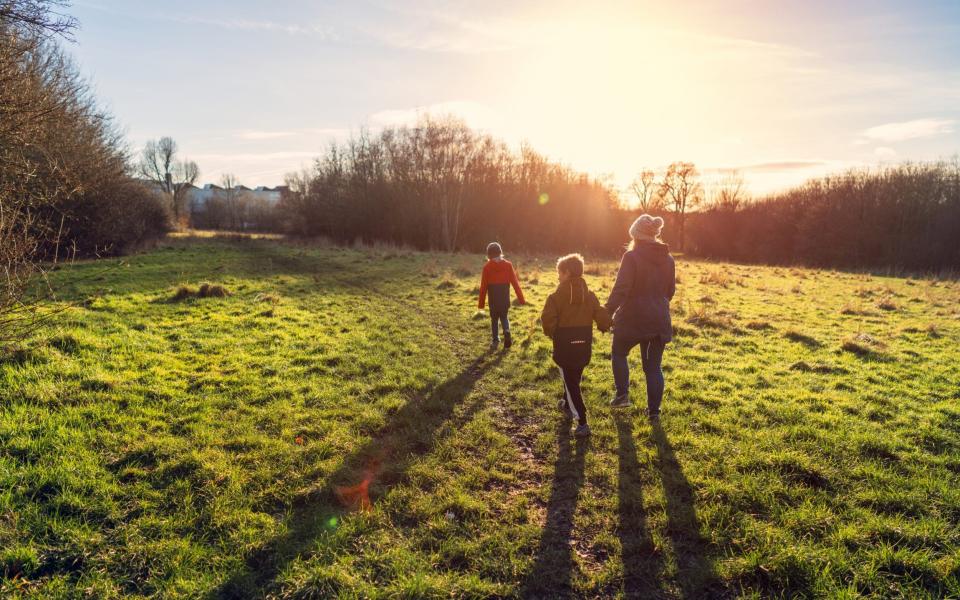How to eat dinner at 5pm and not be hungry until breakfast

Breakfast like a king; lunch like a prince; dinner like a pauper.” So the old saying goes.
And a new study suggests there is science behind the idea that eating earlier can help people maintain a healthy weight.
According to research by scientists at Harvard University, published in the journal Cell Metabolism, the odds of people feeling hungry during the day were halved when they ate their final meal at 5pm compared with those eating dinner at 9pm. Eating later was found to have an effect on the ratio of leptin and ghrelin, two hormones that influence the desire to eat. Specifically, levels of leptin, which helps make us feel sated, starts to fall when people eat closer to bedtime. Late eaters were also found to burn calories at a slower rate and the gene activity in their fat cells changed to promote fat growth. Meanwhile, 5pm diners were less likely to store fat.
The results aren’t surprising for Anna Mapson, registered nutritional therapist at Goodness Me Nutrition, who aims to have her family dinner at 5pm or 5.30pm. “Our ability to process glucose is better in the morning, so people who eat earlier in the day tend to have a better insulin response to their food,” she says. “Over the long term, this can lead to a reduced risk of metabolic conditions such as diabetes type 2 or obesity.”
She adds: “Eating late at night may lead to more circulating fatty acids in the blood and increased periods of raised glucose, which could affect health in some individuals.”
If dining at 5pm is impossible, Mapson recommends her clients finish dinner around three hours before going to bed to allow time for better digestion. “When we go to sleep and we’re still processing the last meal, our sleep is likely to be disturbed. Our gut cells regenerate overnight, and this process works better when digestion can slow down.”
An overnight fast of 12 hours is sufficient for most people (check with your GP if you are on medication or have an existing health condition).
“Eat breakfast from 6am if you need to, but eating at 7am or later would also be OK,” says Mapson.
Nutritionist Rory Batt believes “there’s no reason that dinner should be smaller than breakfast. It depends what the demands of the day are.” For instance, you may need a bigger breakfast to account for a day where you skip lunch, or a bigger dinner after a large training session. And while your 5pm meal might end up being large, it’s advisable to keep the hefty carbs to a minimum.

So, what should your last meal of the day include? Mapson recommends protein such as meat, fish, eggs, or tofu. “This helps you to feel fuller for longer.” She would also include a small amount of carbs, such as starchy vegetables, potatoes, quinoa or rice, as studies have shown they help to encourage better sleep when eaten four hours before bedtime. “Eat low-energy foods such as green leafy vegetables and fruit as the fibre helps keep you feeling satisfied for longer overnight.”
However, she says, if it gets to 9pm and you’re starting to feel hungry again, it’s a sign of two possible things: “that you haven’t eaten enough, or you are misinterpreting your body’s internal hunger signals.”
Check if “you’ve eaten enough protein throughout the day,” says Mapson. “If you haven’t correctly fuelled yourself then your body will still be crying out for energy at night. Increase your breakfast and lunch meals until you’re getting good levels of healthy fats, at least 50g of protein and around 25-30g of fibre per day.”
Healthy, appetite-sating meals include stir-fry chicken or prawns with brown rice, or a piece of fish, baked potato and lots of vegetables. Breakfast could include an omelette with vegetables or meat, or porridge with nuts and seeds, topped with high protein yoghurt.
It’s important to check whether your hunger is actual physical hunger or just boredom or habitual hunger, says Mapson. “Sometimes we eat because we normally eat at that time, and it’s not a physical need for food.” But, starving yourself is not good either. Mapson recommends a snack such as yoghurt with berries, or nut butter on toast to keep you going.
A post-dinner walk will help you digest your food and encourage glucose to be taken up by your skeletal muscles. “This helps with cravings and to avoid snacking in front of the TV.”
If you have excess weight to lose, you may also be misinterpreting your body’s internal hunger signals. Give your body a chance to adapt to a longer evening fast. Drink a nighttime infusion before bed rather than reaching for the biscuits. Also distraction can work if you suspect your pangs aren’t genuine. “Take up a craft, or do your nails, anything that keeps your hands busy,” says Mapson.
But most importantly, don’t blame yourself if 5pm isn’t feasible, says Mapson. “Yes, there are some benefits to eating earlier, what’s more important is that your eating habits fit your lifestyle.”

 Yahoo Movies
Yahoo Movies 